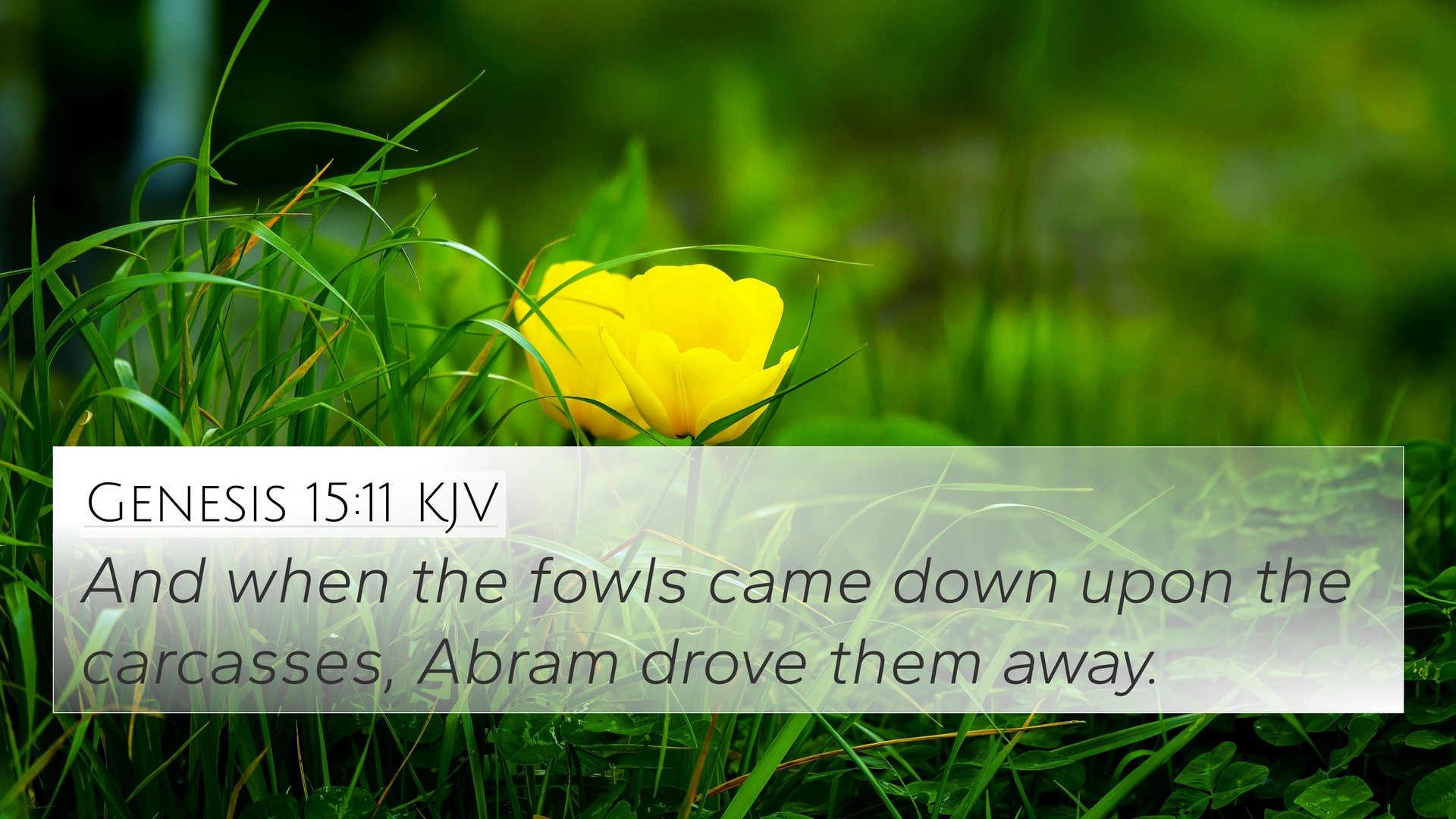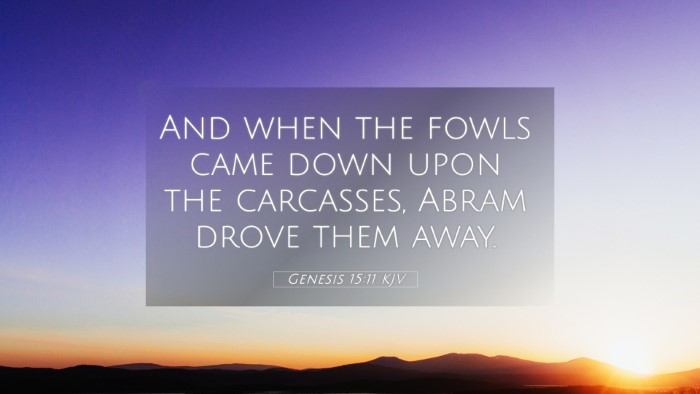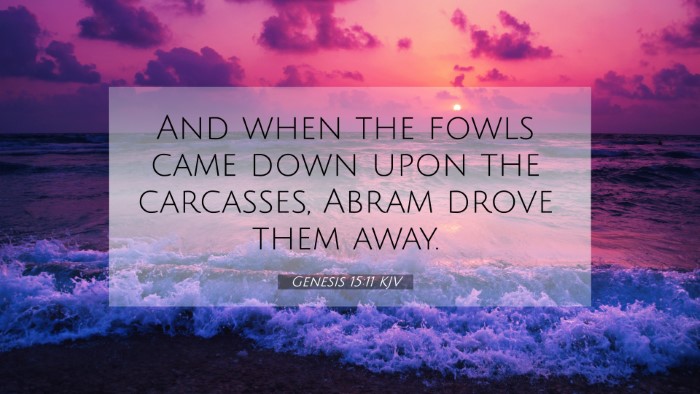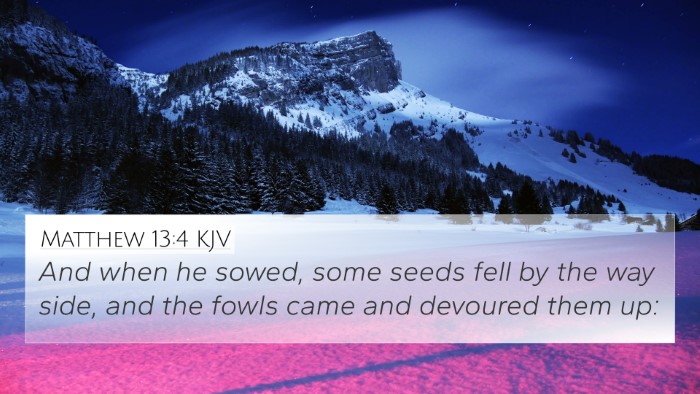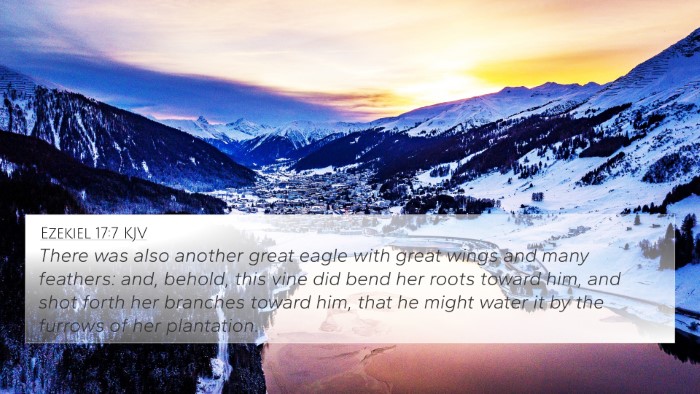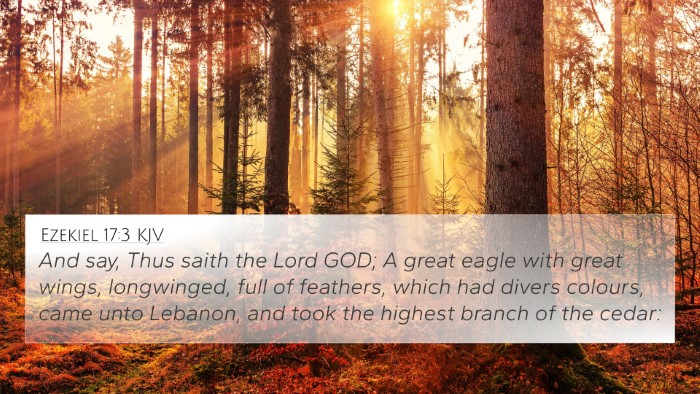Understanding Genesis 15:11
Genesis 15:11 states: "And when the fowls came down upon the carcasses, Abram drove them away." This verse occurs within a crucial narrative in which God makes a covenant with Abram, establishing His promises to him. To understand this verse fully, we can explore insights from various public domain commentaries to unveil its deeper meanings.
Contextual Significance
The context of Genesis 15 revolves around God's covenant with Abram, where the use of sacrificial rites signifies God's promise. The verse describes a moment where birds of prey attempt to consume the sacrifices. Here, Abram's actions symbolize a resistance against evil forces that threaten to disrupt divine intentions.
Commentary Analysis
-
Matthew Henry's Commentary:
Henry emphasizes the symbolism in Abram's actions, indicating that the driving away of the fowls can represent the discarding of doubts and fears that oppose God's promises. He draws parallels between this act and the believer's struggle against spiritual obstacles.
-
Albert Barnes' Notes:
Barnes interprets the fowls as representations of evil influences trying to disrupt the covenant ceremony. He points out that Abram's proactive response to 'drive them away' reflects a necessary vigilance in guarding one's faith and the commitments made to God.
-
Adam Clarke's Commentary:
Clarke adds that the presence of these fowls illustrates the common spiritual battles believers face, while Abram's act teaches that one must actively participate in safeguarding their covenant with God. This highlights the theme of perseverance in faith amidst external challenges.
Thematic Connections
This verse provides thematic connections that resonate throughout the Bible. It can be related to various other scriptures that deal with divine promise, vigilance in faith, and the importance of resisting spiritual opposition. Below are cross-references that readers can consider:
- Exodus 34:27: God commands Moses to write the words of the covenant, emphasizing committed actions to God's promises.
- Romans 4:20-21: Paul speaks of Abraham's unwavering faith amidst uncertainty, portraying a vivid parallel with Abram keeping watch during the sacrifice.
- 1 Peter 5:8: "Be sober-minded; be watchful. Your adversary the devil prowls around like a roaring lion, seeking someone to devour," which echoes the need to drive away spiritual threats.
- James 4:7: "Submit yourselves therefore to God. Resist the devil, and he will flee from you," highlighting the active resistance required in the believer's life.
- Hebrews 11:17-19: This passage reflects on Abraham’s faith amid trials, emphasizing perseverance akin to driving away the fowls.
- Matthew 13:4: In the Parable of the Sower, the birds represent those who take away the word sown, much like Abram's need to protect his offerings.
- Luke 17:10: "So you also, when you have done all that you were commanded, say, ‘We are unworthy servants; we have only done what was our duty,’” implying obligation in performing one’s covenantal duties.
Application for Today's Believer
Genesis 15:11 encourages readers to remain vigilant and actively protect the sacred commitments made to God. It signifies that believers should expect challenges along their spiritual journey and be prepared to resist these forces.
Research and Tools for Cross-Referencing
For those looking to deepen their understanding of biblical texts, employing tools for Bible cross-referencing, such as a Bible concordance or a Bible cross-reference guide, can prove invaluable. These resources facilitate an enriching exploration of connections between Bible verses, enabling a more thorough comparative Bible verse analysis.
Conclusion
Ultimately, Genesis 15:11 not only serves as a narrative on God's covenant with Abram, but it also conveys timeless lessons about faith, vigilance, and the importance of resisting negative influences. In studying this verse and applying the insights gleaned, believers can find empowerment in their spiritual lives while building connections with extensive biblical themes.
